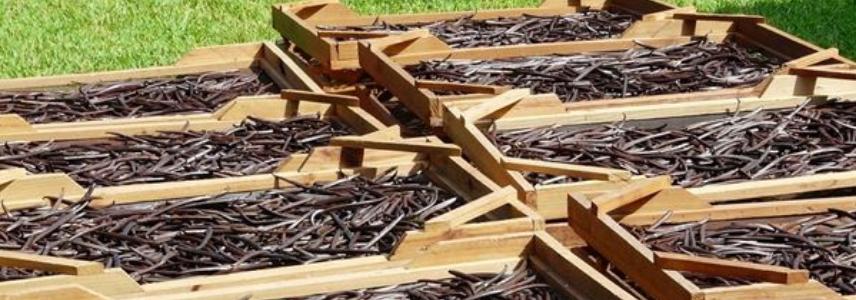Ethical food additive sourcing is becoming more important

More and more European natural food additive buyers are looking for traceability in their supply chains. To export to Europe, you need to meet ethical, environmental and quality standards. Your product should also improve living standards, education, and the natural environment. This is what buyers look for in ethical sourcing.
Let us look at vanilla as an example of the development towards a more ethical supply chain. Vanilla extract is widely used as a food additive, especially in bakery products.
The vanilla situation
Vanilla production has suffered from a decrease in quality, price volatility and a lack of traceability. The majority of vanilla is produced in one country, Madagascar. Cyclones, climate change and drought have impacted the country’s ecosystem and social communities. This has disrupted vanilla supply and demand.
Also, vanilla is not native to Madagascar and pollinating the crop involves a lot of manual labour. The amount of labour required has led to the use of child labour. The complex network of farmers and fragmented supply chains also limit traceability and reliability.
Developing the vanilla supply chain
Leading global and local vanilla industry companies are developing ethical supply chains to address industry issues. In 2015, the Sustainable Vanilla Initiative was launched. This initiative encourages cooperation between parties to:
- improve local livelihoods;
- prevent child labour;
- safeguard the environment; and
- ensure the quality of products.
One example of an ingredient company working on ethical sourcing is Symrise. Since 2006, Symrise has developed its vanilla supply chain to include processes from pollination to flavour extraction. Symrise works with local communities to monitor its network of smallholder farms. The company has a close relationship with its suppliers due to its long-term investment.
Vanilla for Change
The Anglo-Dutch food multinational Unilever has partnered with Symrise, NGOs and charities in its Vanilla for Change programme. This programme invests in education to improve environmental awareness and farming practices. It also tackles poverty and financial uncertainty, which causes many issues in vanilla production. Partners from this programme have provided food aid, healthcare and crop diversification programmes. Companies like Unilever and Symrise are also partnering with development agencies to put sustainability programmes in place.
Exporting to Europe
We expect ethical sourcing to become even more important for European food additive buyers. This puts pressure on food manufacturers to provide transparency on ingredients and production methods. You should take measures to ensure a positive impact on the environment and communities. This will help you export to the European market.
Read our study on vanilla extract for more information on market potential and market entry requirements.
Stay informed
To stay informed on the latest developments in the natural ingredients sector, subscribe to our newsletter.
Ecovia Intelligence wrote this news article for CBI.